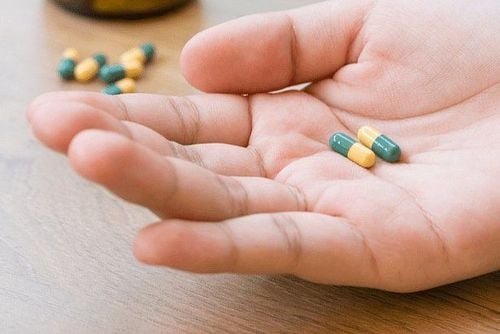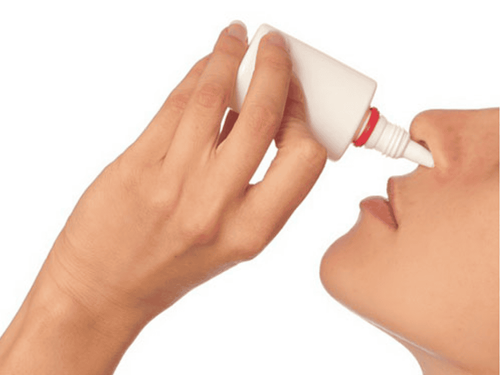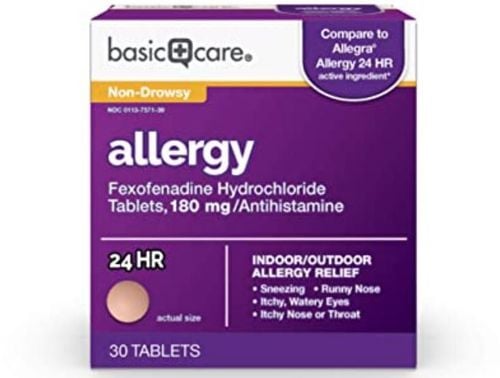This is an automatically translated article.
Ceritine has anti-allergic effect and is used in cases of hypersensitivity. The following article helps you better understand the uses, usage and notes when using Ceritine.
1. What is Ceritine?
Ceritine is a 2nd generation antihistamine that is available in the form of 10 mg film-coated tablets. It works by reducing the natural chemical histamine in the body. Histamine can produce symptoms of the body's response such as sneezing, itching, watery eyes, and a runny nose.
2. What disease does Ceritine treat? Ceritine is used to treat cold or allergy symptoms such as sneezing, itching, runny nose, or watery eyes.
Ceritine is also used to treat allergic reactions, itching, and swelling caused by chronic urticaria and to minimize or eliminate symptoms of allergic rhinitis, chronic idiopathic urticaria, allergic asthma, and urticaria. urticaria and atopic dermatitis.
3. Contraindications of Ceritine Drugs Ceritine should not be used in the following cases:
Patients with a history of hypersensitivity to cetirizine, hydroxyzin; Do not use the drug for children under 2 years old; Children 2 to 6 years old with liver dysfunction or kidney failure; The drug should not be used in the first 3 months of pregnancy.
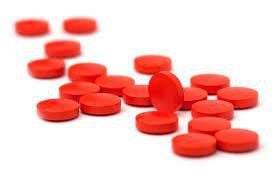
Ceritine là thuốc kháng histamine thế hệ thứ 2
4. Drug interactions of the drug Ceritine
Studies with Diazepam and Cimetidine showed no evidence of drug interactions. As with other antihistamines, avoid drinking a lot of alcohol while taking Ceritine.
There is a slight decrease in clearance of Ceritine when co-administered with theophylline 400 mg dose.
5. Ceritine overdose The symptoms observed after an overdose of Ceritine are mainly related to CNS or anticholinergic effects.
Side effects reported after taking at least 5 times the recommended daily dose are:
Confusion; Diarrhea ; Dizziness, fatigue, headache, irritability; Slightly dilated pupils; Rashes; Insecurity, restlessness; Drowsiness, panic; Fast heart beat ; Tremor and urinary retention. If overdose occurs, treatment should be symptomatic or supportive. Gastric lavage is recommended to be considered shortly after an overdose. Cetirizine is not effectively removed by dialysis.
6. Side effects of the drug Ceritine
Ceritine can cause the following side effects:
Autonomic nervous system: Anorexia, hot flashes, increased salivation, urinary retention. Cardiovascular: Heart failure, increased blood pressure, palpitations, tachycardia. Central and Peripheral Nervous System: Abnormal motor coordination, ataxia, confusion, emotional disturbances, decreased sensation, increased or decreased movement, leg cramps, migraine, myelitis, paralysis, paresthesia, syncope, tremor, convulsions, dizziness, visual impairment. Gastrointestinal: Abnormal liver function, aggravated tooth decay, constipation, dyspepsia, abdominal distension, flatulence, gastritis, hemorrhoids, increased appetite, rectal bleeding, stomatitis. Genitourinary system: Cystitis, painful urination and bleeding with bleeding, urinary tract infection. Hearing and Vestibular: Deafness, pain, toxicity and tinnitus. Metabolism/Nutrition: Dehydration, diabetes mellitus, thirst. Musculoskeletal: Pain, inflammation and dryness of joints, muscle weakness. Psychiatric: Abnormal thinking, agitation, amnesia, anxiety, decreased libido, depersonalization, depression, emotional instability, euphoria, impaired concentration, insomnia, anxiety, nausea, sleep disturbances. Respiratory system: Bronchitis, dyspnea, hypoventilation, increased sputum, pneumonia, respiratory disorders, rhinitis, sinusitis, upper respiratory tract infection. Reproductive: Abdominal pain and menorrhagia, breast pain, vaginitis. Skin: Acne, alopecia, angioedema, bullous rash, dermatitis, eczema, red rash, boils, seborrhea, maculopapular rash, photosensitivity reaction, toxic reaction to photosensitivity, pruritus, purpura, rash, seborrhea, skin disorders, skin rash, urticaria. Special senses: Taste disturbance, loss of taste, taste deviation. Vision: Possible blindness, conjunctivitis, eye pain, glaucoma, dislocation, eye hemorrhage, ocular disease. Body as a whole: Body weakness, pallor, chest and back pain, enlarged abdomen, hot flushes, weight gain, body edema, malaise, fever, nasal polyps, periorbital edema. Transient, reversible increases in hepatic transaminases have occasionally occurred during treatment with Cetirizine. Hepatitis associated with significant transaminase elevations and hyperbilirubinemia associated with the use of Cetirizine hydrochloride
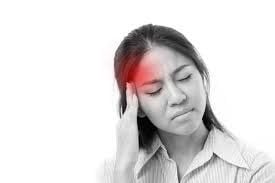
Thuốc Ceritine có thể gây ra các tác dụng phụ như đau nửa đầu
7. How to use Ceritine
Take Ceritine with water. Can be taken before or after meals.
The dose used for each patient may vary depending on the physical condition and medical condition of each person. The usual dosage is as follows:
Adults and children 6 years of age and older who can swallow the tablet: The dose is 1 single 10mg tablet per day. Patients with renal impairment (with creatinine clearance 11 to 31 ml/min), patients on hemodialysis (creatinine clearance < 7 ml/min) and liver failure: Dosage should be reduced. 5 mg/time/day. Some other effects of Ceritine are not listed on the drug label, but your doctor may direct you to take it. Therefore, to ensure safety and effectiveness, you should use the drug exactly as prescribed by your doctor.
Please dial HOTLINE for more information or register for an appointment HERE. Download MyVinmec app to make appointments faster and to manage your bookings easily.






